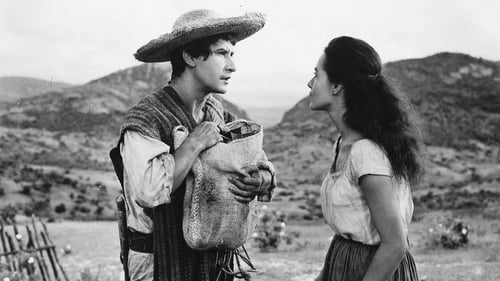
Sacerdote (uncredited)
Poor, hungry peasant Macario longs for just one good meal on the Day of the Dead. After his wife cooks a turkey for him, he meets three apparitions, the Devil, God, and Death. Each asks him to share his turkey, but he refuses all except Death. In return, Death gives him a bottle of water which will heal any illness. Soon, Macario is more wealthy than the village doctor, which draws the attention of the feared Inquisition.

Cowboy-policeman-hero interferes with the bad guy's plans and prevents his engaging in monkeyshines. Part of the series "Mauricio Rosales, el rayo justiciero."

Two brothers named Margarito butt heads courting the same woman.

(uncredited)
Salvador accompanied by two friends of his father whom he calls uncles, they arrive at a fair in the village, there he meets Ana. When he wins a bet he is paid with a mortgaged house, to his surprise upon entering the hom he realizes that Ana and her mother live in it, provoking a funny entanglement with an explosive final.

Cantinero
Fishing-village girl sacrifices her reputation to the local banker to protect her family; fron there, she follows the path of least resistance, but she never forgets the fiance she left behind...

Mexican feature film

Sr. Olea, padre de Manuel
Los dineros del diablo (The Devil's Money) is a Mexican drama film directed by Alejandro Galindo. It was released in 1953 and starring Amalia Aguilar and Roberto Cañedo.

Homeless/unemployed dude has a spiritual awakening and rehabilitates himself working at a circus.
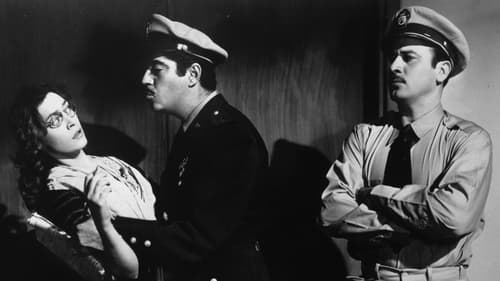
Invitado (uncredited)
A drifter lands a job as an officer in México City's elite motorcycle police unit and gets home with a mate of this unit. The mate is in love with a girl, but he and she are always making jealous to each other. The drifter and the mate get involved themselves in a fight to become the winner of conquering ladies and performing unit acrobatic tricks, interfering with their friendship and profession.

Velador
Young women in the steno-pool have to balance work, romance, and touchy-feely bosses.

Escritor de la pelicula (uncredited)
The movie starts with Braulio Peláez (Pedro Infante), a schoolteacher, having just fallen off his horse, representing the situation he and his family are in. The next scenes introduce the viewer to his family and their poor financial and social situation. As Braulio stumbles around looking for his glasses, he causes a famous film star, Alfonso de Madrazo (Rafael Alcaide) to crash his car. Braulio offers him to eat at his house as an apology. Braulio's sister and mother, big film fans, immediately recognise Alfonso and attempt to get him to bring the girl, Luisa Peláez (Irma Dolores) to Mexico City to become a film star. Alfonso agrees and tells them to come to the capital.
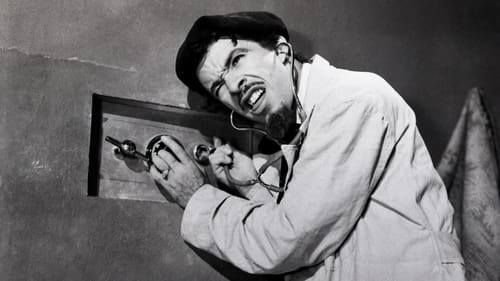
Mataor (uncredited)
A poor man becomes a modern Robin Hood, robbing the rich to give to the poor.
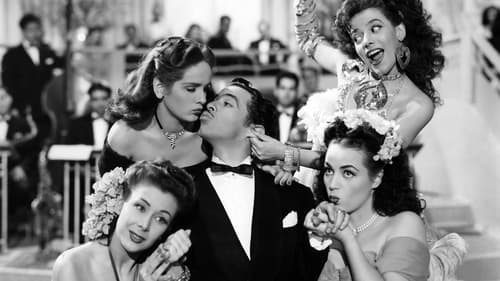
Don Gumersindo
A man hired to impersonate a bankrupt business mogul who is currently on the run from creditors sets out organize a musical starring beauties from Brazil, Mexico, and Spain in this Spanish-language comedy starring popular funnyman Tin Tan. Now, as the hapless imposter attempts to finance a musical without any money, he also discovers just how difficult it can be to juggle three beautiful starlets who all have eyes for their presumably wealthy producer.

(uncredited)
On March 22, four days after returning to his home in Andalusia, Luis de Vargas writes the first of his letters to his uncle and favorite professor at the seminary. He reports that his father intends to fatten him up during his vacation, to have him ready to return in the fall to finish his training for the priesthood. He mentions in passing that his father is courting a twenty-year-old, attractive widow, Pepita Jiménez; his father is fifty-five years old. Pepita had been married for only a short time to an eighty-year-old moneylender named Gumersindo. Luis is not eager to see his father marry again, but he promises his uncle not to judge Pepita before he knows her.
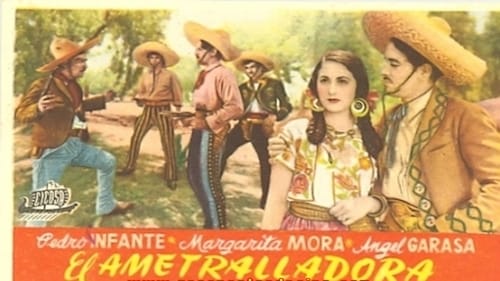
Spanish grocery store owner
Peasant farmer and landowner are rivals for a woman. Sequel to Ay Jalisco No Te Rajes.

A woman with a past meets a man with a past; the back story of each one represents an obstacle to their couple-bonding. Will they work through their traumas?









